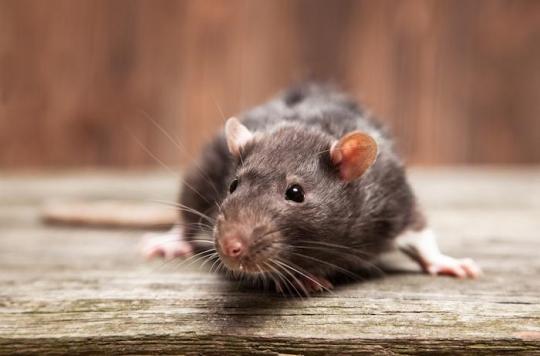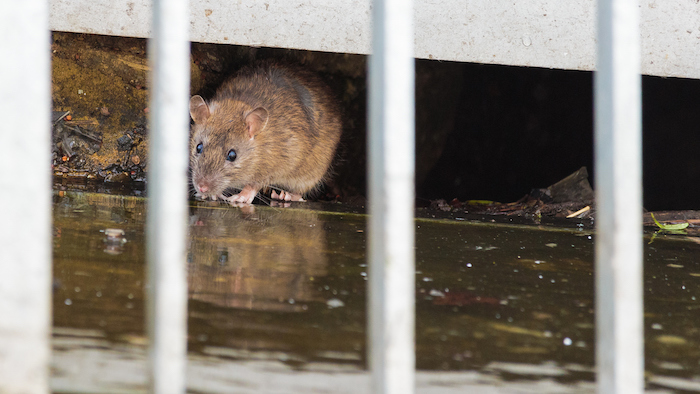In Libourne, a 44-year-old triathlete died after contracting leptospirosis. Also called “rat disease”, this bacterial disease is mainly transmitted through the urine of rodents. There are 60,000 deaths each year around the world.

In the week of May 14, a 44-year-old man died after contracting leptospirosis. A triathlete, he was licensed at the Libourne club and had become accustomed to training in different water points in the region, including Lac des Dagueys, located north of the city.
“Rats just need to urinate on a wooden board”
If for the moment, there is no evidence that the contamination took place in one of the water points where the triathlete trained, the city of Libourne has decided to take precautions. Thus, an alert was launched with the Regional Health Agency and the Health Watch unit in order to determine the presence or not of the bacteria in the water. A municipal team was also tasked with inspecting the perimeter of the lake in order to check for the presence of rodents. Samples were taken and sent to the Pasteur Institute in Paris. The results will be known within ten days.
“It is not even sure that he contracted it in the water. He may well have done work on his home where rats could have contaminated the place”, declared Élisabeth Dugos, president of the ASL Triathlon during an information meeting for club members, cited by South West. The latter invites residents not to “give in to panic”. “Any body of water can contain leptospirosis,” she continued. “Rats only need to urinate on a wooden board” for the disease to develop.
60,000 deaths per year worldwide
A bacterial disease transmitted by animals via their urine, and in particular rats, leptospirosis can also be transmitted by wild or domestic animals. At issue: pathogenic bacteria such as the species Leptospira interrogans, which persist in fresh water and muddy soils. The seasonality of the disease is very marked, with a summer-autumn recrudescence linked to heat and precipitation.
Leptospirosis is the most common zoonotic disease in the world due to the large number of reservoir mammals, wild or domestic, which can carry the bacteria. “It causes more than 1 million cases and is responsible for around 60,000 deaths per year worldwide, according to Public health France. The burden of leptospirosis is therefore comparable or even greater than that of other neglected tropical diseases such as dengue or leishmaniasis. “In 2016, the National Reference Center for Leptospirosis (Institut Pasteur, Paris) reported two cases of leptospirosis among the inmates of Fresnes prison, in Val-de-Marne.

According to the Institut Pasteur, leptospirosis is a disease of worldwide distribution, predominantly tropical. In mainland France, it affects around 600 people each year and an average of 700 cases in the overseas departments and communities, where climatic conditions are favorable to the maintenance of the bacteria in the environment.
Certain professions (farmers, breeders, sewer workers, garbage collectors, etc.) and people practicing water sports (swimming, canoeing, kayaking, fishing, hunting, canyoning, etc.) are particularly at risk. A vaccine against the type of bacteria is also offered to certain professionals such as sewer workers or veterinarians. This vaccination requires a booster every two years and does not protect against all serovars.
Endemic in overseas communities
In humans, the bacteria mainly penetrate through damaged skin or mucous membranes. In its moderate form, leptospirosis “begins with a high fever with chills, headaches, muscle pain and diffuse joint pain. It can progress to kidney, liver, meningitis or lung damage”, details the Pasteur Institute.
It can also lead to death in 5 to 20% of cases. The more severe forms can also cause bleeding or jaundice. “Diagnosis is often late during infection. Indeed, the clinical spectrum of leptospirosis can vary from a flu-like condition to acute renal failure, this syndrome can be confused with other diseases such as influenza or, in tropical regions, malaria or dengue fever. “, specifies Public Health France.
Leptospirosis “remains largely underestimated due to the absence of specific symptoms and a lack of awareness within the medical community, in particular in metropolitan France where its incidence, during 2014 and 2015, reached 1 case per 100,000 inhabitants, the highest incidence observed since 1920 “, explain the epidemiologists of Public Health France. But it is endemic in many overseas departments and communities (Martinique, Guadeloupe, Guyana, Reunion Island, Mayotte, New Caledonia, French Polynesia), where its incidence can be 50 times higher than in mainland France.
.















